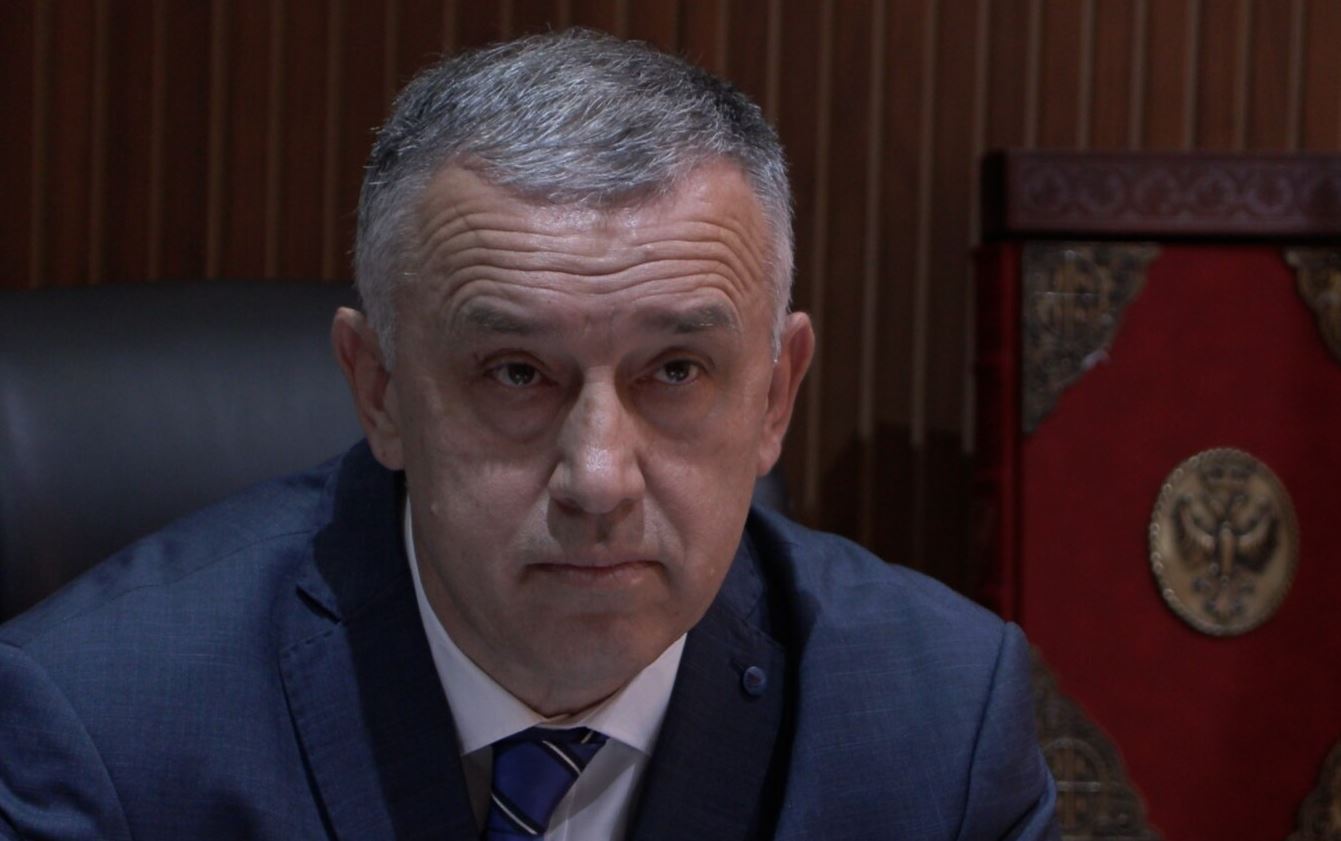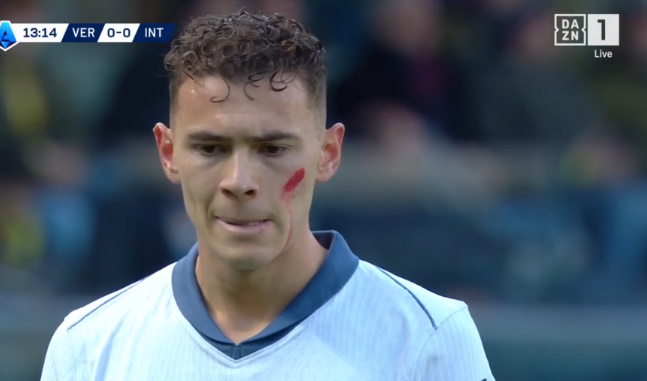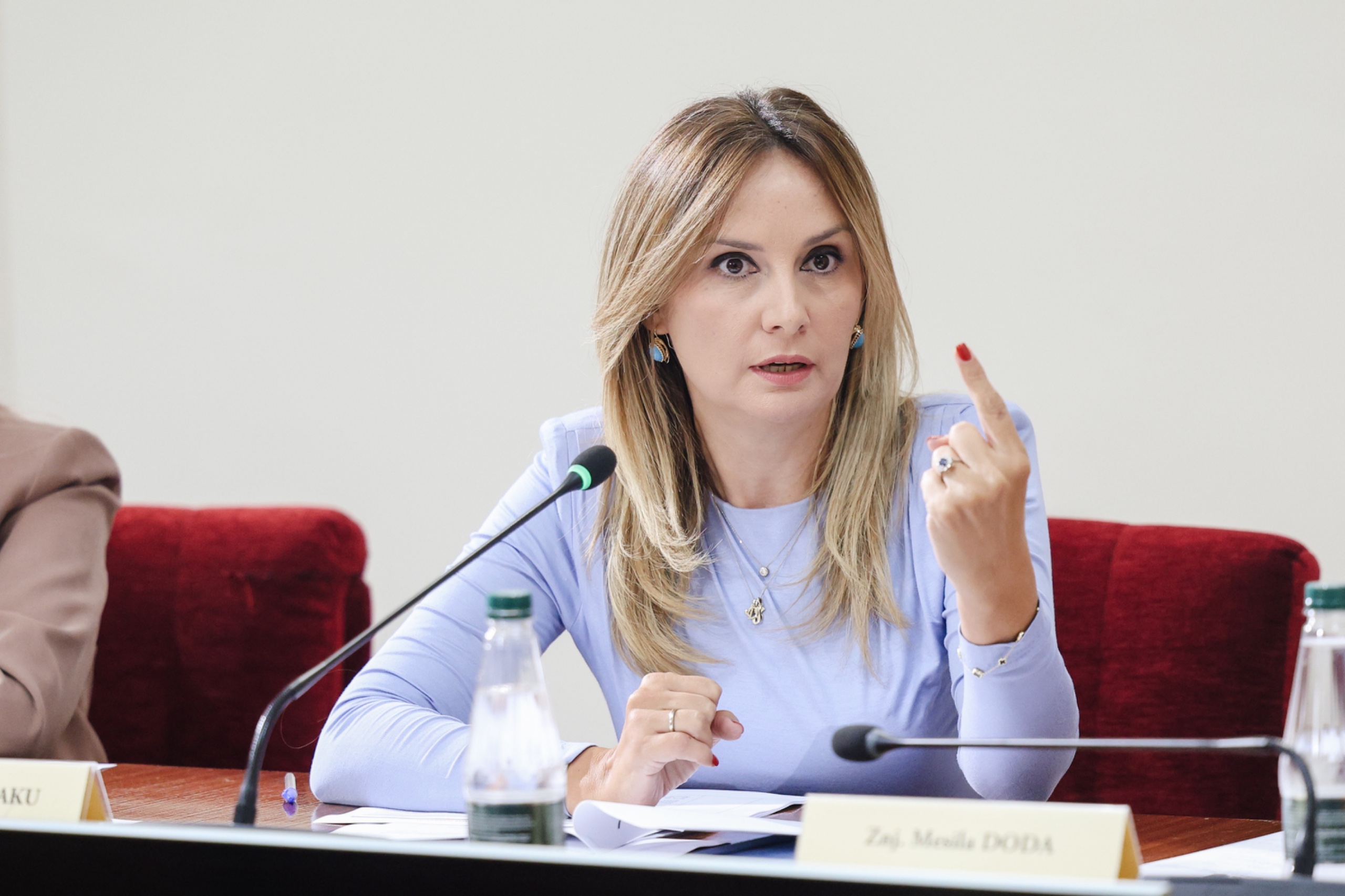“NATO troops decided that if the Yugoslav Army wished to be awkward, the Kacanik defile could block it,” Freer recalled, 25 years later, in an interview from his home in Scotland.
But they hadn’t counted on the Russians.
“It all happened very quickly. There was very little hold-up getting through the Kacanik defile, and then I was asked to get to Prishtina airfield very swiftly,” Freer recalled. “The situation was extremely tense.”
The story of Russia’s lightning dash to Pristina and what subsequently ensued has become the stuff of legend ever since it emerged months later that the British general in charge of NATO forces deploying to Kosovo, Michael Jackson, refused an order from NATO’s American supreme commander, Wesley Clark, to evict the Russians.
“I’m not going to start World War Three for you,” Newsweek reported Jackson as telling Clark, raising serious concerns at the time over the chain of command in the Western military alliance.
Ahead of the 25th anniversary of the end of the Kosovo war and NATO’s deployment, 71-year-old Freer told BIRN about the “weird” 24 hours he spent with Russian general Viktor Zavarzin and Jackson’s conviction that the standoff could be resolved in a “soldier-like” way.
“The Russian contingent was small, but they were quite well-armed, and if there had been a shooting war it could have escalated very easily,” he told BIRN.
Russia and Serbia ‘hand in glove’
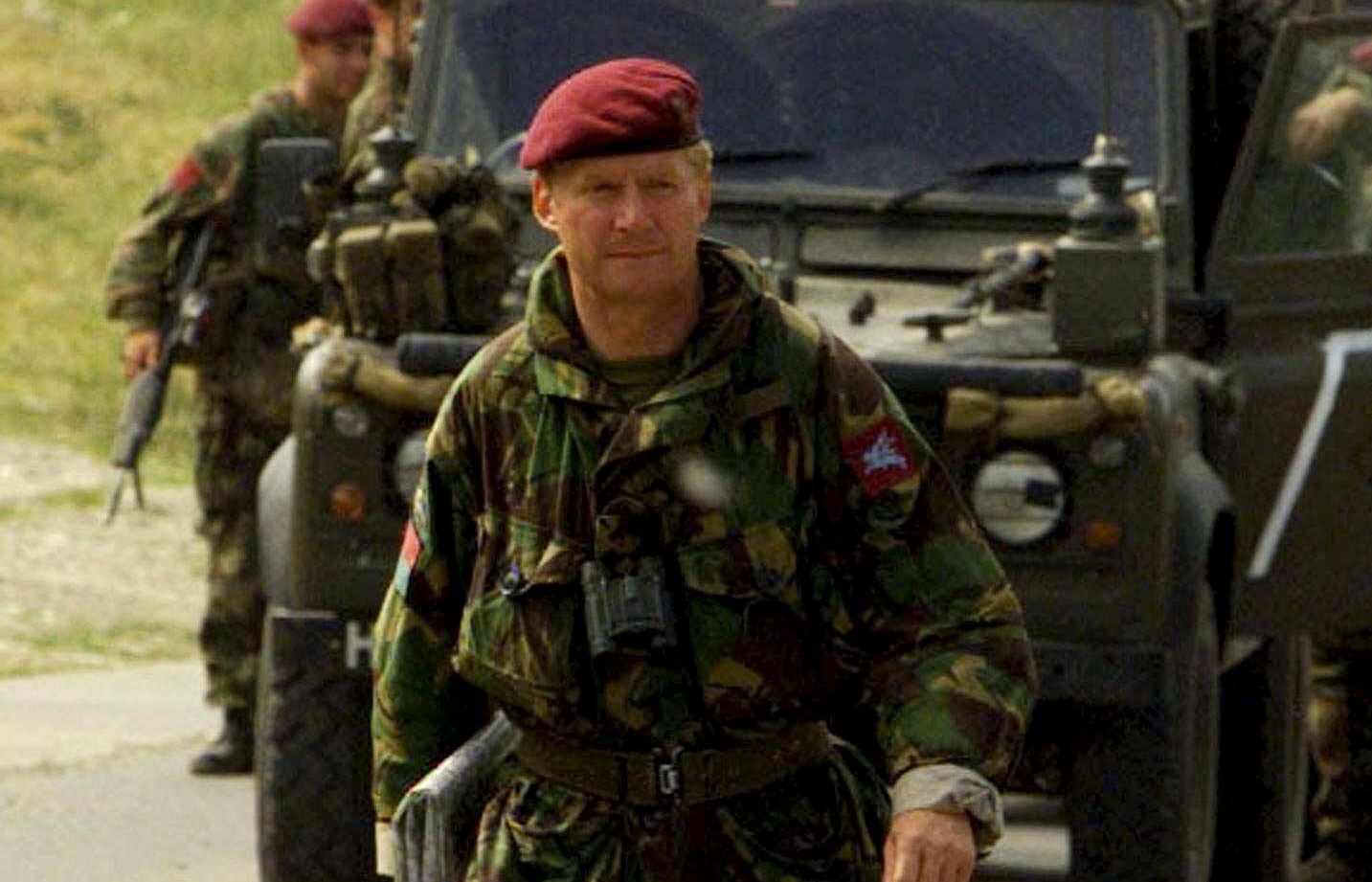
British Army brigadier Adrian Freer in front of a column of army vehicles near the Kosovo town of Kacanik, 12 June 1999. Photo: EPA/POOL/REUTERS/RUSSELL BOYCE/STF/PEK/FMS
According to Freer, NATO knew the Russians were on their way to the airfield. “The Russians had just driven at considerable speed,” he said.
The task of engaging with them fell to British forces, and Falklands veteran Freer.
“I got there and there was a standoff,” he said. “We started talks with the Russian general in a sort of military caravan on Pristina airfield. It was a very strained meeting. Nobody knew how that was going to work.”
It quickly became clear, he said, that there could be no talk of evicting the Russians “for sort of diplomatic reasons”.
“Seizing a piece of ground was seen as both of tactical and operational utility for Russian forces,” he said.
Zavarzin, who was the Kremlin’s military representative to NATO at the time, was “very clear in his objective”, Freer said. The general’s presence gave the Russian operation considerable weight.
“As is well known, Russia and Serbia being hand in glove, it was very much Russia coming to Serbia’s aid, if I can put it that way.”
Looking back, Freer said the British position of avoiding direct confrontation with Russian forces “was absolutely right”.
“At the end of the day, common sense prevailed. It would have just been a disaster,” he said.
As Jackson flew back to North Macedonia, Freer stayed on at the airfield.
“I ate with the Russians and I have to say their rations were particularly unattractive,” he said. “It was an interesting post-war night.”
The Russians maintained a presence at the airfield for four years before withdrawing in July 2003. Five years later, Kosovo declared independence from Serbia with the backing of the major Western powers but neither Russia nor Serbia.
Echoes in Ukraine
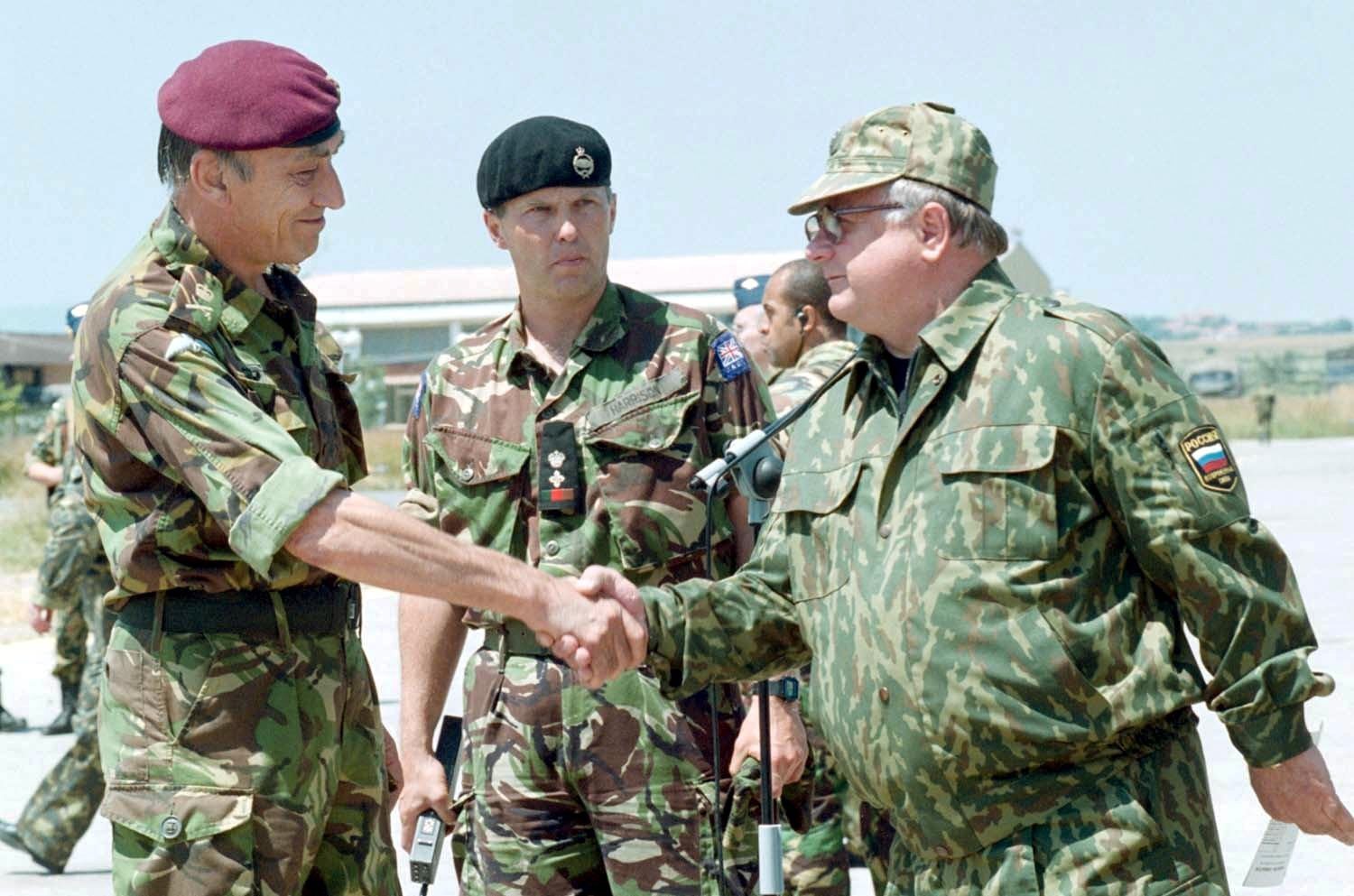
KFOR commander General Michael Jakson (left) and the commander of Russian troops in Kosovo, General Zavardin, shake hands at Prishtina airport on 26 June 1999. Photo: EPA/MLADEN ANTONOV/STF/MA/FOB/OW.
Moving through Kosovo immediately following the deployment, Freer recalled seeing “a huge amount of destruction”, razed villages and dead civilians.
“Not far from Prishtina, in a village we saw they had murdered about 50 villagers of all ages,” he said, referring to Serbian forces.
But even as Kosovo Albanians greeted the advancing NATO convoys with flowers and smiles, Freer said the deployment was fraught with operational challenges and “planning errors” as he sought to ensure a buffer zone between advancing NATO troops and withdrawing Yugoslav and Serbian forces.
Notwithstanding sporadic incidents involving guerrillas of the Kosovo Liberation Army, KLA, Freer said NATO “ensured that the Serb forces’ withdrawal was not interfered with by the KLA”.
“The KLA recognised that there were rogue elements among them, hardliners who felt they had a point to prove. But if you’ve had your family murdered, you’re not going to be predisposed to be charitable.”
A quarter of a century on, amid a new war in Europe, Freer said he and his soldiers who deployed into Kosovo felt that they were “taking part in something purposeful, with real meaning”.
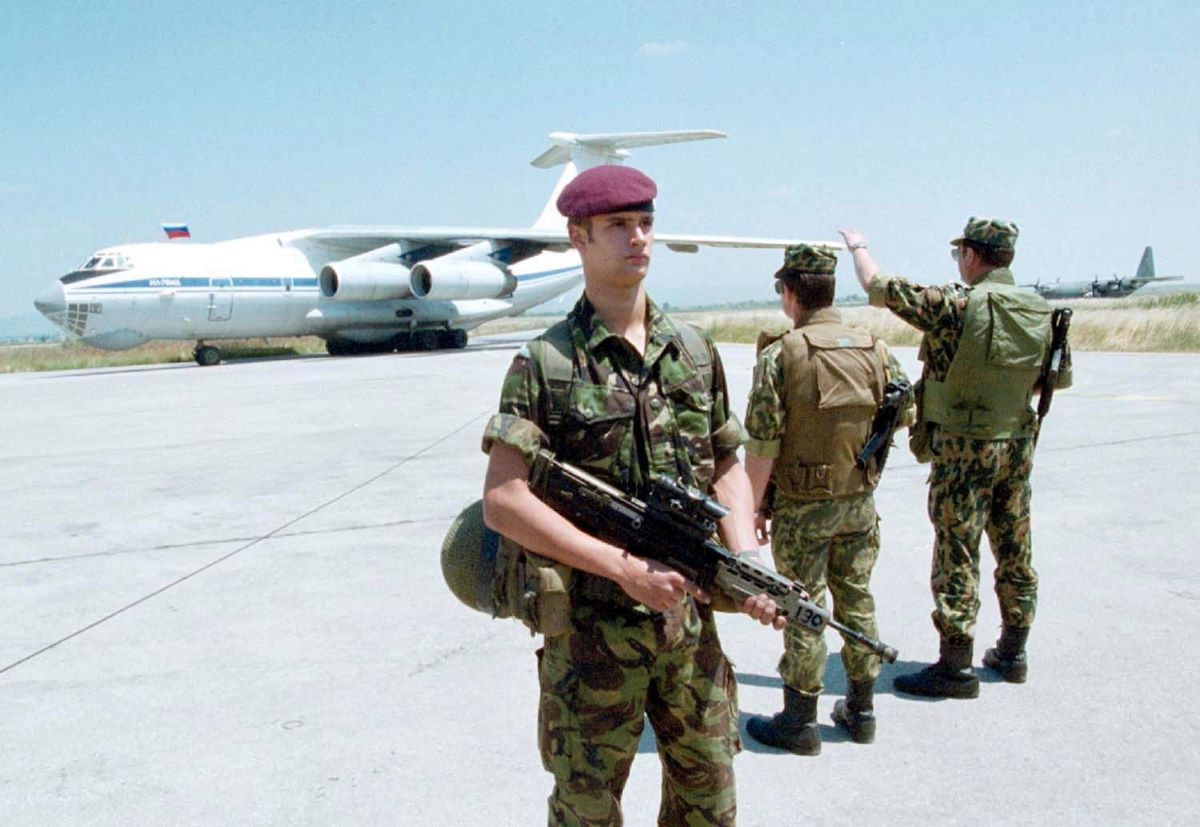
A British soldier stands guard on the tarmac of Prishtina airport as two Russian soldiers watch a Russian Ilyushin-76 plane landing on Saturday 26 June 1999. EPA-PHOTO/EPA/MLADEN ANTONOV
“There had clearly been some horrific ethnic cleansing and people were traumatised,” he told BIRN, and said there were parallels with Ukraine since Russia’s full-scale invasion of its neighbour in February 2022.
“There is no doubt. We were underpinning a humanitarian operation after atrocities,” Freer said. “It is clearly akin to what is happening now in Ukraine where the civilian population is very much in the front line and suffering”.
Asked whether he favoured more direct intervention by the West in the war in Ukraine, Freer said it would be “foolhardy” of him to try to second guess NATO’s future direction with regards the conflict.
“However,” he said, “there is absolutely no doubt [that] without NATO’s fulsome support, particularly its training of Ukrainian soldiers and the provision of armaments and materiel, Ukraine would be unable to sustain its current operations.”
“NATO will, I am sure, be monitoring the situation continuously in order to be in a position to appraise member governments what needs to be done to achieve a successful outcome in a number of given scenarios.”
